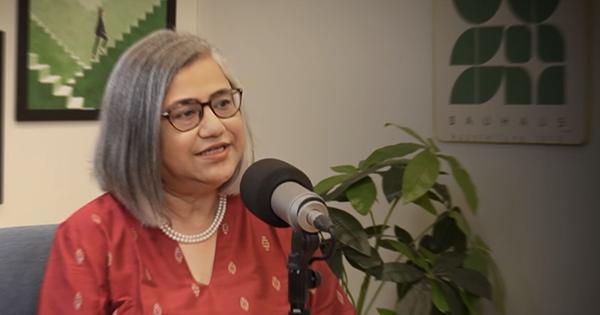
Leadership is a journey filled with complexities, contradictions and inevitable challenges. As you climb higher in your career, the pressures, dilemmas and grey areas only grow. Often, leaders grapple with expectations – both self-imposed and external – that demand perfection, omniscience and unshakable confidence. The reality is far from this idealised version. The truth is that leadership is messy, imperfect and deeply human. This chapter dives into the common leadership conundrums, providing honest, practical and empathetic insights to help you navigate the tough questions that arise along the way. These aren’t just theoretical ideas – they’re lived experiences that I and many others have faced. The goal is simple: to remind you that it’s okay not to have it all figured out and to equip you with the mindset to lead with authenticity and resilience.
You don’t have to be the best at everything, and that’s okay
As a senior leader, the pressure to be the most knowledgeable, skilled and capable person in the room can be overwhelming.
But here’s something that’s easy to forget: you don’t have to be the best at everything. Leadership isn’t a solo performance. It’s about enabling others to do their best work.
Think about it this way: if you were the best at everything, your organisation would only grow to the extent of your individual capabilities. The real magic happens when you harness the diverse talents of your team. Great leaders know how to recognise expertise in others, delegate effectively and build an environment where every team member’s strengths are leveraged.
Throughout my career, I’ve never been the best at any single skill or role within the organisations I worked in. I was not the best analyst at Crisil – above average is what I would say I was. At ONI, I wasn’t the best investor either. Across every area of my organisation’s work, there were always people with greater skills, deeper expertise or broader knowledge. And that’s the idea. Instead of trying to be the best at anything, I focused on being excellent at orchestrating outcomes, asking the right questions, making decisions and inspiring the team.
Take a lesson from cricket – a captain’s role isn’t to score all the runs or take all the wickets but to position their players where they can make the most impact. Leadership is a team sport, and your value lies in creating a high-performing collective – not in trying to do it all yourself. Give yourself permission to step back, acknowledge gaps and trust your team to fill them. It’s liberating, empowering and – most importantly – it works.
You won’t have all the answers, and that’s okay
One of the biggest misconceptions about leadership is that you need to have all the answers. In reality, great leaders don’t pretend to know everything – they excel at asking the right questions.
Leadership in rapidly changing times means facing ambiguity, making decisions with incomplete information and relying on your team’s expertise. The best leaders create environments where it’s safe to admit uncertainty and seek input. This approach not only leads to better decisions but also fosters a culture of trust and collaboration.
When you’re faced with a situation where you don’t have the answers, resist the urge to fake confidence. Instead, be transparent with your team. Say, “I don’t have the full answer right now, but here’s how we can figure it out together.” Your vulnerability will encourage others to contribute ideas and solutions.
Effective leadership means guiding your team through uncertainty with curiosity, humility and a commitment to finding the best way forward together – not pretending to know it all.
You will always have doubts and insecurities, and that’s okay
A UK study found that 85% of people feel inadequate or incompetent at work, often suffering in silence due to the belief that they are alone in their feelings. Author Neil Gaiman recounts a conversation with Neil Armstrong, where Armstrong expressed his self-doubt, saying, “I look at all these people [entrepreneurs in the room] and think, what the heck am I doing here? They’ve made amazing things. I just went where I was sent.” Gaiman reminded him, “But you were the first man on the moon. I think that counts for something.”
Even the most accomplished leaders experience moments of self-doubt – impostor syndrome is particularly common among high-achieving individuals, who set exceptionally high standards for themselves. Insecurities often come from caring deeply about your role and wanting to do your best. The key is not to eliminate these doubts but to manage them effectively.
Acknowledge that self-doubt is a natural part of growth. When you step into new challenges or take on greater responsibilities, it’s normal to feel unsure. Instead of letting insecurities paralyse you, use them as fuel to prepare thoroughly and seek input from trusted advisors.
At the same time, don’t let your inner critic drown out your accomplishments. Keep a record of your wins and remind yourself of the value you bring to your team and organisation. Reflecting on your past successes can help you build confidence for future challenges.
Vulnerability, when used with intention, makes you stronger as a leader. When you share your insecurities with trusted colleagues, you often find that they’ve faced similar struggles. This not only normalises self-doubt but also deepens your connections with others. Even after decades in roles that required extensive public speaking, I still get nervous before addressing an audience – and I’ve heard other CEOs admit the same.
The presence of doubt doesn’t make you a lesser leader – it makes you human. Great leaders aren’t fearless; they’re courageous in the face of fear.
You will fail, and that’s okay
Failure is an inevitable part of leadership. No matter how experienced or prepared you are, some decisions will go wrong, some strategies will miss the mark and some risks will not pay off. The question is not if you will fail, but how you will respond when you do.
In leadership, failure often plays out in the spotlight. When things don’t go as planned, the instinctive reaction can be to avoid acknowledging the mistake, to justify the decision, or to shift responsibility. But great leaders own their failure, learn from it and move forward stronger.
No leader has avoided failures, and you will have your share of them, too – strategic misjudgements, hiring decisions that didn’t work out and moments when we hesitate too long or act too soon. At the time, these failures felt frustrating, even disheartening. But when I look back on such experiences, I can see that they forced me to refine my approach, sharpen my decision-making and recognise the importance of course correction.
When a mistake happens, pause and assess what went wrong – whether it was a miscalculation, a failure to anticipate challenges or an external factor that wasn’t in your control. Take those learnings forward. Above all, focus on solutions rather than blaming others or yourself.
Excerpted with permission from Leadership Beyond the Playbook: Craft Your Own Path. Lead with Impact, Roopa Kudva, Penguin India.
📰 Crime Today News is proudly sponsored by DRYFRUIT & CO – A Brand by eFabby Global LLC
Design & Developed by Yes Mom Hosting






